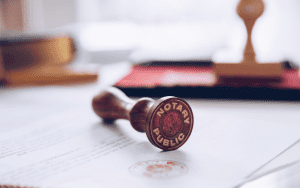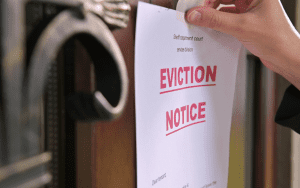Upon the birth of a child, both parents automatically have a duty to support that child. The fact that the child is born to married or unmarried parents is irrelevant. The duty is apportioned between the parents according to their respective means.
S 15(1) of the Maintenance Act states that a court order for the maintenance of a child is directed at the common law duty of a child’s parents to support that child. Since this obligation commences upon the birth of a child, the father, for example, is not relieved of his obligation to pay maintenance if the mother does not seek to enforce it.
It is a common occurrence that parents use the right of access to a child as leverage not to pay maintenance and vice versa. Examples include when a father withholds child maintenance payments to the mother if he is unable to have contact with the child, or when a mother denies the father access to the child if he does not make payments towards the maintenance of that child.
A parent’s right of access to a child and the obligation to maintain the child, are two very distinct issues.
A parent may not withhold payment of maintenance if he or she is not allowed by the other parent to exercise his/her right of access to a child. The flip side of the coin is that a parent may not refuse the other parent access to a child when the latter does not contribute towards the maintenance of that child. This conduct is unlawful. Taking the law into your own hands is prohibited and proper legal procedure must be followed to exercise these rights.
If a parent fails to pay maintenance, the parent with whom the child resides, commonly referred to as the primary carer of the child, can approach the Maintenance Court to make an application for child maintenance. In determining the amount that the parent should contribute, the court will consider the standard of living of the child, the financial needs of the child, the income of the parents, the parent’s financial ability to pay maintenance and/or lack thereof.
In the event that a parent is refused access to a child, he or she can approach the Clerk of the Children’s Court to make an application for a parenting plan in terms of section 33 of the Children’s Act, setting forth the terms whereby access to a child is granted. The parenting plan is essentially an agreement between the parents regarding the upbringing of the child, including but not limited to, access to the child, maintenance, and education.
The parents may agree and incorporate into the parenting plan the following:
- The primary carer of the child;
- Access to the child by the other parent, having due regard to, inter alia, weekends, school holidays, birthdays, special occasions, and transport arrangements;
- The amount of maintenance payable including or excluding, inter alia, medical expenses, and/or school fees and expenses;
- Consent and arrangements regarding travel outside the province, outside the country, etc;
- Procedure to follow when a dispute arises in terms of the agreement.
The parties may opt to make a parenting plan an order of court and a parent who is not abiding by it can be held in contempt of court subject to exhausting all alternative methods of dispute resolution.
As a parent, you have the obligation to maintain your child and the right of access to your child. Although these issues are closely related, they remain two distinct and separate matters with different legal processes. Therefore, it is unlawful for a parent to withhold maintenance of a child when access to that child is refused and vice versa.
Reference List:
- Children’s Act 38 of 2005
- Maintenance Act 99 of 1998
- School for Legal Training: Attorneys’ Practice Study Guide Gawie Le Roux 2018
This article is a general information sheet and should not be used or relied on as legal or other professional advice. No liability can be accepted for any errors or omissions nor for any loss or damage arising from reliance upon any information herein. Always contact your legal adviser for specific and detailed advice. Errors and omissions excepted (E&OE)
















